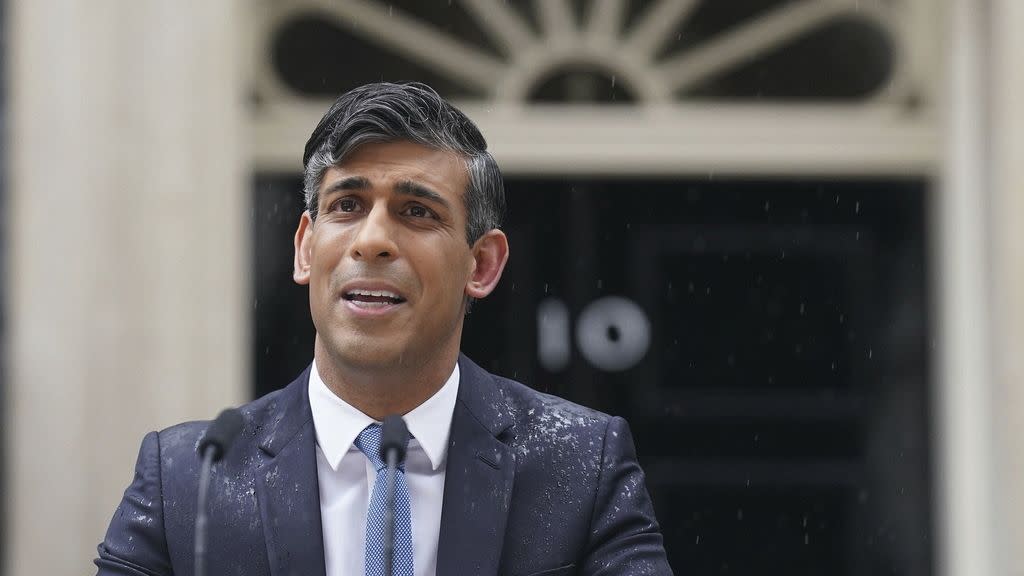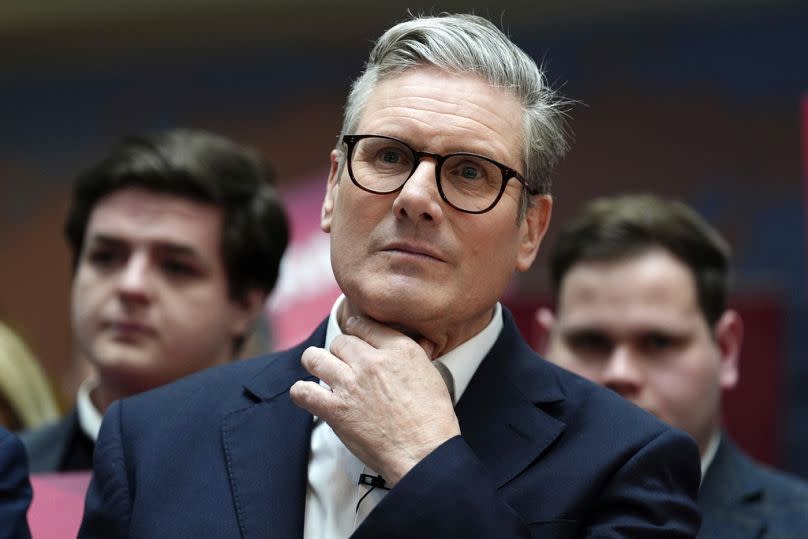Controversy as UK Conservatives plan to bring back compulsory national service

The beleaguered UK Conservative party has revealed plans to reintroduce compulsory national service if they win the upcoming general election.
Prime Minister Rishi Sunak said the initiative is aimed at fostering a "national spirit" akin to that seen during the COVID pandemic.
The proposal would see 18-year-olds participate in either a 12-month full-time military placement or engage in community service one weekend a month for a year.
The scheme - estimated to cost approximately £2.5 billion (€2.9bn) - aims to provide young people with valuable skills and work experience.
An internal Tory briefing paper seen by The Mirror, a UK newspaper, suggested young people could be arrested for not taking part.
How popular is national service?
The programme would offer 30,000 full-time military positions where participants could gain experience in areas such as cyber security, logistics, procurement, and civil response operations.
For those opting for community service, the programme would involve 25 days of volunteering with organisations such as the fire service, police, and NHS.
Sunak highlighted this move is intended to provide young people with opportunities they have been missing and to unite society in an increasingly uncertain world.
A YouGov survey from September 2023 reveals that Britons have mixed feelings about such a scheme.
The survey explored various types of national service programmes, including whether they should be compulsory or voluntary, military or civilian, and whether they should last one month or one year.
The findings show that Britons are more likely to support voluntary schemes than compulsory ones and prefer community service over military service.
Only 28% of Britons support a compulsory, year-long military service scheme, with 64% opposing it. A one-month compulsory military scheme was similarly unpopular, with 29% in favour and 62% against.
The UK Conservatives have announced they want to bring back compulsory national service if reelected.
But is this a good thing?
✍️@jweaskewhttps://t.co/KvzYW4glT1— euronews (@euronews) May 26, 2024
Criticisms from Labour and Liberal Democrats
Labour has criticised the proposal, calling it a "desperate" and "unfunded" plan. They compared it to former Prime Minister David Cameron's "Big Society" initiative from 2010, suggesting this is another costly proposal without proper financial backing.
The centre-left party also pointed out that Conservative spending cuts have reduced the armed forces to their smallest size since the Napoleonic era.
Liberal Democrat defence spokesperson Richard Foord echoed these sentiments, criticising the right-wingers for past cuts to troop numbers and questioning the practicality of the proposed scheme.
The Conservatives argue national service would help divert at-risk young people from lives of unemployment and crime, providing them with direction and purpose.
They claim that the scheme could ignite a passion for future careers in healthcare, public service, charity or the armed forces.

National service could begin by September 2025
The £2.5 billion (€2.9bn) funding for the programme would come from reallocating £1.5bn (€1.75) from the UK's Shared Prosperity Fund and raising an additional £1bn (€1.17)through a crackdown on tax avoidance and evasion.
A Royal Commission is set to be established to work out the details of the national service programme, with a pilot scheme expected to begin in September 2025.
This commission will also determine possible non-criminal sanctions for those who refuse to participate.
The proposal comes as the Conservative Party prepares for the upcoming general election on 5 July, aiming to make national security and youth engagement key issues.
Several European countries, including Sweden, Norway, and Denmark, already have forms of mandatory military service.
These countries use conscription to ensure that a portion of their population receives military training and can be mobilised quickly in times of need.
The UK's proposed national service programme, with its dual focus on military and community service, aims to provide similar benefits while addressing domestic social issues.

